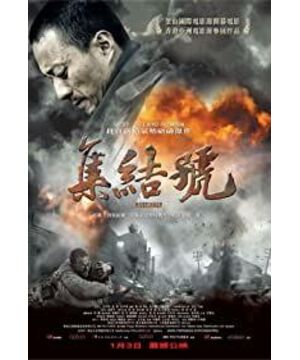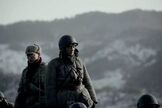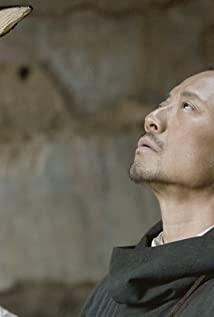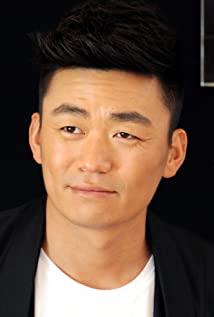Three-act structure, chronological narrative. Receiving an order to guard the site, hearing the rally and then retreating is the motivating event and the core thread that ties up the entire story. The contradictory settings are also more obvious: First, the enemy is well-equipped, with advanced weapons and sufficient ammunition. However, our army is insufficiently equipped and outdated in weapons, with fewer enemies and more enemies, which greatly enhances the dramatic tension; it is whether the rallying horn has sounded, whether it is because the head of Guzidi has not heard well, or the brothers have an illusion. hear? This question was not revealed until the final encounter with the trumpeter. It turned out that in order to retreat smoothly, the rallying horn would never be blown at all. The question again greatly enhanced the tragic nature of the film, and the theme was sublimated.
In terms of character settings, the relationship between characters is always the friendship in war in the main theme war films. Getting rid of the image of the paper man in the previous main theme movies, the most obvious character arc is the instructor Wang Jincun with a red scarf. From the very beginning, because of fear, before going to the battlefield, he was cowardly and was locked up. When he saw his brothers die, he rushed out with blood on his face to kill the enemy. In the end, lay down among the dead and set off the bomb yourself. Sven college students who graduated from normal schools eventually became bloody men and gained experience in the war. The character is very real and human. Not everyone is born immune to bombs. Gu Zidi, the image of a qualified regimental leader, brave and loyal, not afraid of sacrifice, dare to exchange his own life for Erdou's life, the image of a bloody warrior immediately appeared on the paper. But the instructor violated the military order after being bombed, and ordered to shoot after the enemy surrendered, which made his image plump immediately. This is a man with flesh and blood, not an emotionless war machine.
The character lines are also very grounded, in line with the background of the times. Such as: 1. "The Kuomintang can't fight well, this outfit is not bad!" (After the first bloody battle at the beginning, the brothers of Jiulian put on the Kuomintang boots to warm their feet and said. PK the traditional domestic war film "Kuomintang" The reactionaries are all paper tigers”)
2. "With guns flying on the head and grenades running in the crotch, even gods have to pee?" (When the protagonist Gu Zidi was imprisoned because he shot and killed the surrendering enemy, he met Wang Jincun, a weak scholar and soldier who was scared to wet his pants on the battlefield. He sighed comfortingly. PK's routine lines of traditional domestic war films: "I am afraid of death and not a Communist!")
3. "I wrote a letter from home, but I don't understand a few words. You can fill in the blanks for me." (When Gu Zidi took Wang Jincun to the front line of the Wenhe battlefield and introduced it to his 47 brothers, he won the first prize. sentence accordingly.)
4. "Does this work for you? Can you avoid bullets?" (When the brothers hid in the cave to avoid the bombardment, the old hedgehog asked when they saw Lv Kuangou reciting "Namo Avalokitesvara Bodhisattva" incessantly. .)
5. "It's alright. Seeing the blood will make you feel at ease!" (Before the war, when one of his brothers said to Gu Zi, "The new instructor is a little peeing," Gu Zidi replied.)
6. "Put it up in the snow one by one, be careful that the bomb will be smashed, and if it is smashed, you won't be able to squeeze a piece."
On the theme, it not only expresses the cruelty of war and the hard-won peace, but also expresses the sadness of thousands of martyrs who became anonymous after their sacrifice, and the sadness of a martyr for 700 pounds of millet. In the second half, because of the reorganization of the army, Gu Zidi was unable to prove his true identity, and the tragic episode where he was not respected also reflected the film's call for favoring veterans. The martyrs in the film were finally posthumously recognized and awarded, but in reality, how many people ended up being one of the thousands of solitary graves of the anonymous. Compared to the past, this theme has improved a lot.
View more about Ji jie hao reviews










